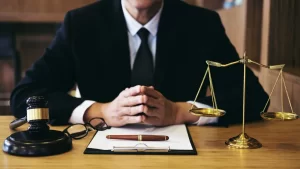
If you’ve been injured at work, you may be wondering what your next steps are. Do you have a workers’ compensation case? A personal injury case? Both? Neither? Both areas are very different and are categorized separately for a reason. In this blog post, we’ll give you a quick overview of workers’ compensation, personal injury lawyers greeley co and personal injury law so that you can have a better understanding of your situation and make informed decisions about what to do next.
What is Workers’ Compensation?
In short, workers’ compensation is a system of insurance that provides benefits to employees who are injured or become ill as a result of their job. Workers’ compensation covers medical expenses, lost wages, and more. In some cases, employees do not need to prove that their employer was at fault for their injuries in order to receive benefits; however, there are some exceptions to this rule. When it comes to workers’ compensation, it’s important for employees and employers to understand their rights and responsibilities. As an employee, you have the right to file a worker’s compensation claim if you’ve been injured on the job. This includes both physical injuries as well as illnesses contracted during employment. Your employer is responsible for providing coverage through workers’ compensation insurance, and they cannot retaliate against you for filing a claim. It’s important to act quickly after experiencing an injury or illness in the workplace, as there may be time limits for filing a claim. If you’re unsure of your rights and options, seeking guidance from a workers’ compensation lawyer can help ensure that you receive the benefits and support you deserve. Don’t suffer in silence – know your workers’ compensation rights.
What is a Personal Injury Case?
A personal injury case is a civil lawsuit filed by an injured person against the person or entity they believe to be responsible for their injuries. Unlike workers’ compensation, personal injury cases require the injured person to prove that the other party was at fault for their injuries. If successful, an injured person may be awarded damages for their medical expenses, lost wages, pain and suffering, and more. Personal injury can happen in a variety of ways, from car accidents to slip and falls to medical malpractice. No matter how it occurred, personal injury can have a major impact on your life. You may be facing medical bills, lost wages from missing work, and physical and emotional pain. It’s important to know that you have legal options available to hold responsible parties accountable and seek compensation for your damages. Working with a personal injury lawyer atlanta ga can help make sure you are fully advocating for yourself and getting the justice you deserve. Don’t try to go it alone – let an experienced personal injury attorney guide you through the process and fight for your rights. Take care of yourself, and know that support is available. Your personal injury story is important, and it deserves a fair resolution.
Which One is Right for Me?
The answer to this question depends on many factors, including the nature of your injuries, who was at fault for your injuries, and whether you live in a workers’ compensation state or not. In some cases, it may be possible to pursue both a workers’ compensation claim and a personal injury lawsuit. However, it’s important to speak with an experienced attorney before taking any legal action so that you can understand all of your options and make the best decision for your situation.
If you’ve been injured at work, it’s important to understand your legal rights and options before taking any action. In this blog post, we’ve given you a brief overview of workers’ compensation and personal injury law to help you to understand your situation much better and make informed decisions about what to do next. Of course, every situation is unique, and this blog post is not meant to serve as legal advice. If you have questions about your specific situation, we encourage you to speak with an experienced attorney who can help guide you through the process and ensure that you take all the necessary steps to protect your rights.




